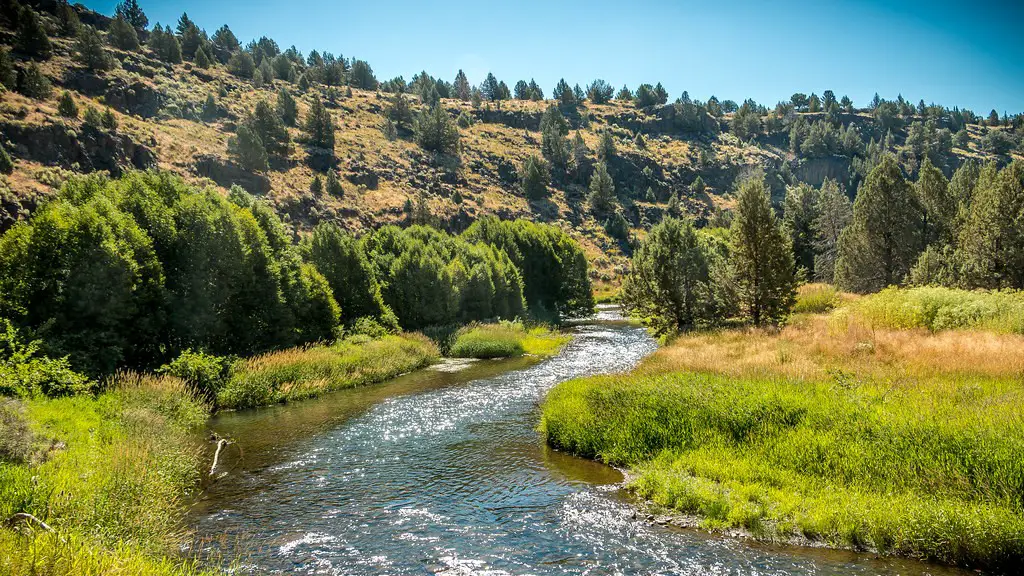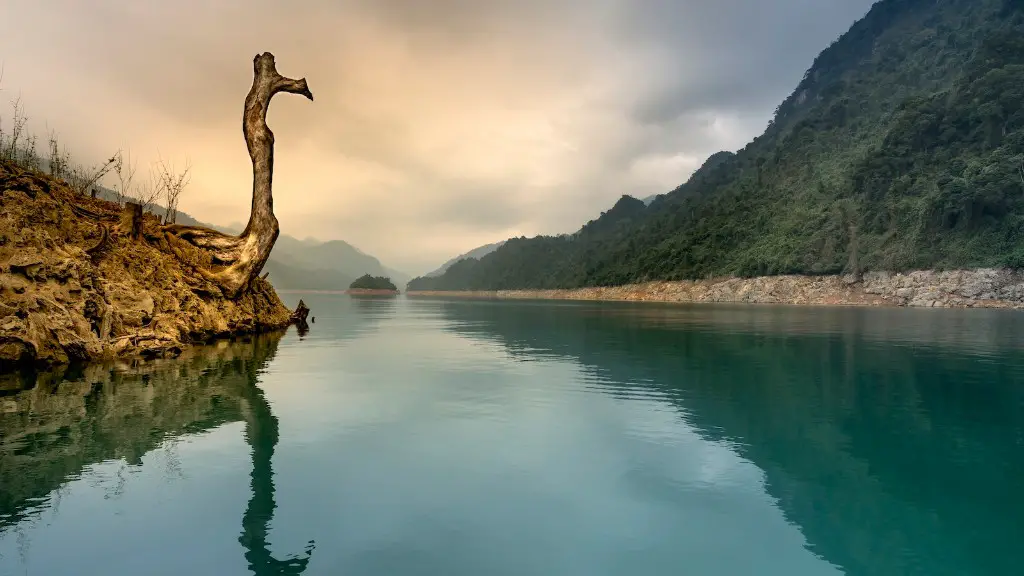Economic Impact
The Nile River and its tributaries are vital for the economic life of Egypt. For example, irrigation and other water needs for agriculture are met by the Nile. Egypt has historically relied on agriculture for food and other exports. In some areas, such as the Nile Delta and areas along the Nile, the agricultural activities are intense. In addition, the capital city of Cairo and many other cities in Egypt rely heavily on the Nile for vital recreation, industrial and transportation needs.
The river is an important source of hydroelectric power. Hydroelectric power plants at Aswan, High Dam, Edfu, and Esna are built along the Nile to provide electricity to the Egyptian people and businesses. In addition, the Nile provides fishing opportunities, especially in its delta. The interior regions of Egypt depend heavily on the river’s resources, such as water and fishing catches, to support their families and local economies.
The Nile is also a significant transportation path with a large network of canals, dams and locks connecting Egypt to other countries. It is an important trading route for goods and services. Without the river, the exchange of goods and services among the nations would be significantly diminished.
Historic Significance
The Nile River is an integral part of Egyptian culture. Since the dawn of history, Egyptians have looked to the Nile for sustenance and prosperity. The Nile was seen as a giver of life and fertility, and an important source of commerce and transportation.
The ancient Egyptians used the river for trade and transportation. They used boats for travel, and as a means of transporting goods. The Egyptians also used boats to travel along the Nile to nearby cities, and even as far as present-day Ethiopia. The river was also the primary source of their food supply, as well as the main source of their clothing.
The Nile was also the center of spiritual activity in ancient Egypt. Stories and myths surround the river, and were passed down throughout history. The symbols of the river were often considered to be divine and its plentiful resources were seen as a blessing from the gods. This deep religious connection with the river continued even after the Ancient Egyptians left the land.
Environmental Impact
The Nile’s importance to Egypt is further cemented by its immense environmental impact. The river is home to a broad variety of aquatic life, including fish, birds, mammals and plants. The wetland ecosystems that develop in the catchment areas of the river provide vital habitat for a variety of species. This makes the river one of the world’s most biologically diverse habitats.
The Niger Delta and Lake Nasser are two of the most importantaquatic ecosystems in the Nile basin. These wetlands serve as important feeding and nesting grounds for a variety of bird species, including the endangered species pink-headed duck and the African spoonbill. In addition, the wetlands are home to numerous species of fish, snakes and aquatic mammals.
The Nile River is also a key source of fresh water for the region. Its waters help sustain the desert regions on either side of the river. The wetlands of the Nile Delta and Lake Nasser are in turn important breeding and feeding grounds for a variety of species. Thus, the presence of the Nile and its wetlands significantly contributes to the region’s biodiversity and natural heritage.
Political Impact
The Nile is also a source of political tension, as the countries of Egypt, Sudan, Ethiopia, Uganda, and Tanzania all have rights to the use of its waters. This has led to an ongoing negotiation process by these nations to establish a cooperative system for managing the river’s resources.
The people of the Nile must also contend with the effects of climate change. As the Earth warms, sea levels rise and precipitation patterns change, resulting in an increase in the frequency and intensity of flooding in some areas, and drought in others. This has put strain on the region’s infrastructure, as well as its agricultural and fisheries production.
Cultural Impact
The Nile River has been a source of inspiration to many cultures. Ancient Egyptian art often depicts the Nile and its many creatures. The river has spawned numerous myths and legends. It is a central motif in many pieces of art, literature, and music.
The Nile is also a major part of many religions. In some Hindu texts, the river is the resting place of Lord Vishnu. To Buddhists, it is a symbol of harmony. The Jewish bible describes a miraculous crossing of the Nile.
To the ancient Egyptians, the Nile was seen as the source of all life. It was an important part of their daily lives, providing food, transportation, and irrigation. The importance of the river was central to their culture and it remains so today.
Cultural Relevance
The Nile River is central to the Egyptian identity and culture, and has spiritual significance that transcends borders. As Egyptians and people around the world look towards more sustainable ways to meet their social and economic needs, preserving and protecting the Nile is key.
The Nile is a source of life, sustenance and beauty, and its importance goes beyond its geographical boundaries. Its waters have held stories, provided food and drink, and nurtured all those who seek to use it. It has offered transportation, recreation, and cultural and spiritual enrichment.
Looking to the future, the Nile can serve as a uniting force for the nations that surround it. If the nations can come together over the shared use of the river, a more peaceful and prosperous future for the region is within reach.
Sociological Impact
The Nile River is also a source of national pride for the people of Egypt. Numerous monuments, festivals, and offerings of praise are given to celebrate its grandeur and beauty. These festivities take place along the banks of the river and are a reminder of its importance to the African continent.
The river provides employment and leisure activities to the people who live along its banks. As such, the river provides a deep sense of social cohesion. It brings together people of different ethnicities and religions who, while rivals in the political sphere, are united by their dependence on the river.
Additionally, the Nile is an important focus of tourism in the region. Tourists are drawn to its banks to experience its beauty, wildlife, and history. The tourist industry has injected much needed funds into the region’s economy.
Education
Beyond the immediate economic and social significance it holds for Egypt, the Nile River is also an important educational resource. At its mouth, archaeological sites such as the Valley of the Kings are a testament to the wonders of the ancient Egyptian civilization.
Further upstream, important archaeological findings have been made, such as the discovery of the ruins at Abu Simbel. These sites offer students of history a window into the world of ancient Egypt.
Further, the environment of the Nile is also an important area of study. Studies of its aquatic life, its bird and animal species, and its threat of desertification provide invaluable information for modern conservation measures.
Conversation
The Nile River is also an important part of the global conversation on climate change and sustainability. The river’s historical importance and the effects of climate change could potentially be detrimental to the well-being of the nations that border it.
The nations of the Nile basin are working together to find a viable solution for water management. This involves implementing effective irrigation practices, better conservation measures, and modernizing infrastructure. The goal is to ensure an equitable distribution of its resources and to ensure the long-term sustainability of the river’s environmental and economic potential.
The Nile River is a living symbol of Egypt’s rich history and its potential for a brighter future. Its networks of tributaries and wetlands offer important ecological benefits and the ancient sites along its banks provide evidence of Egypt’s past. As we look to the future, the importance of the Nile River is undeniable, and it is up to us to ensure its sustainability and preservation.


